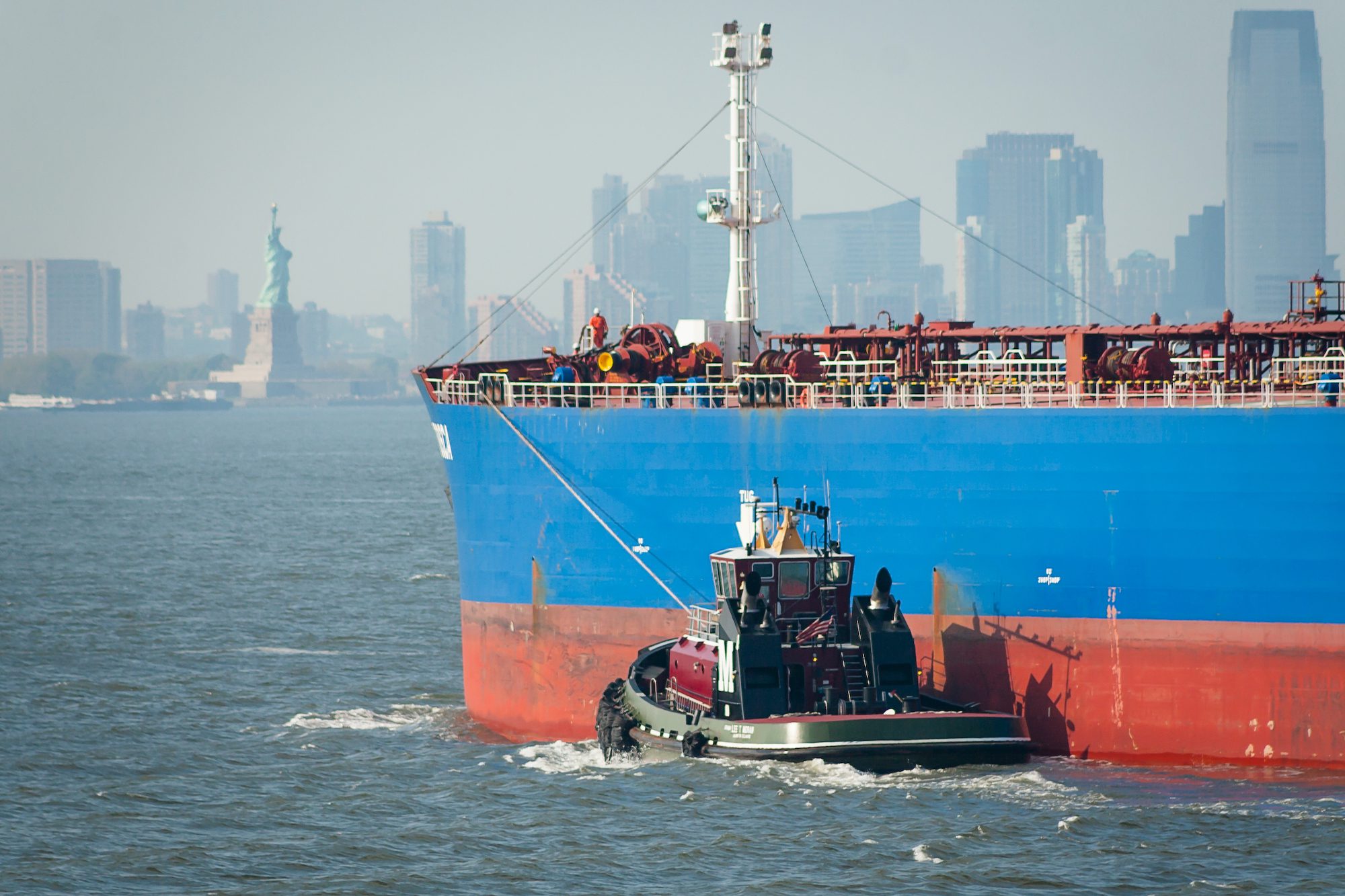Ships Fleeing The Red Sea Now Face Perilous African Weather
By Alex Longley and Paul Burkhardt (Bloomberg) –Ships sailing around the southern tip of Africa are wrestling with a bout of bad weather that has already run one vessel aground and...


Credit: Andres Virviescas / Shutterstock.com
A superb panel of shipowners closed out the HACC/NACC (Hellenic and Norwegian Chambers of Commerce) Shipping Conference, suitably named “Out of the Abyss- Shipping Roars Back?”. The day-long event, held virtually for the second year running, covered subjects ranging from finance, supply chains, environment, and geopolitics (HACC/ NACC, going strong for 28 years now, consistently outshines other shipping events with its coverage of such issues).
Covid-related concerns and impacts were lurking in the background of nearly all the sessions. The Shipowner panel, moderated by Blank Rome’s Jeanne Grasso, a Washington, DC based Partner who concentrates on regulatory and policy matters, consisted of Lois Zabrocky- the President and CEO of listed tanker owner International Seaways, Sam Norton, the top executive at Overseas Shipholding Group (“OSG”)- a leading Jones Act tanker owner, and George Mangos, Director of the privately held Interunity Group- operators of product/ chemical tankers (the “Sokana” fleet, mainly flagged in the Marshall Islands) and managers of multi-purpose/heavy lift and container vessels.
Responding to a question on why the tanker market has lagged behind container and drybulk’s boom times in 2021, Ms. Zabrocky described the sector’ state in 2021 as the “after the party hangover”, coming after the boom times of 2020’s Q2 (when VLCC’s were on charter for north of $100k/day, she pointed out). She said that now the tanker market is poised to come into balance, following the oil markets which have seen big inventory drawdowns- and demand back up near 100 mm bbl/day (with more travel and airplane flights).
OSG’s Norton pointed to similar dynamics on the Jones Act side of the market, lamenting the missing jet fuel component. Mr. Mangos suggested that what tankers have lacked is ”Covid friction” (a polite way of referring to the over-used references to broken supply chains), noting that “…a queue of tankers will be very quickly processed…while a queue of containerships will not.” He expected the strength in boxes and drybulk to continue, pointing to continued lockdowns and a weak vaccination policy in China.
On crewing issues, an important subject, Ms. Zabrocky talked about special measures like deviating vessels to effect crew changes and other workarounds to “logistical challenges”, saying the people are going to have to work through ongoing crew change problems, as “pandemic becomes endemic”. “The seafarers are so resilient…and have borne the burden of all the difficulties during Covid,” she said.
“It’s very difficult to manage these matters…it’s been a crisis, it continues to be a crisis,” said Mr. Mangos- who lamented the fact that seafarers are “…a constituency that tends to be very silent.” He expressed concern that crew changes, were not getting sufficient support at the governmental level, given the matter’s critical importance. In talking about crew isolation, Mr. Norton (whose vessels trade mainly domestically) noted that OSG is involved in a project to make newly added online broadband connectivity available to its seafarers.
The conversation segued to Environmental Social Governance (ESG), which moderator Jeanne Grasso said “is becoming such an important issue in the shipping industry, especially on decarbonization…”.
Mr. Mangos, noting that private companies were exposed to less scrutiny and therefore less worried about transparency, said that “…in the short and medium term, there is a tremendous amount of uncertainty.” He also highlighted uncertainty and expressed concerns about upcoming rules- “…on very practical issues- like how is the legislation going to apply in certain circumstances”, saying that, “…product and chemical tankers are punished from an environmental perspective for trading mostly front-haul, trading laden legs…rather than drybulk and containers, where we have front-haul and back-haul…” In alluding to (but not explicitly calling out) how Carbon Intensity Indicators (CII, a metric which will be figuring greatly in the IMO’s rules) are calculated, he continued, “This makes no sense, because front-haul is to optimize the vessel’s use…it means that the vessel is being used for carrying cargo most of the time. That is certainly more efficient than carrying cargo half of the time.” He called for more certainty on environmental regulations, which should be “…telegraphed as quickly as possible…” could be handled co-operatively rather than competitively.
In continuing the discussion on the uncertainties surrounding regulatory actions, OSG’s Sam Norton pointed to the travails of his company (and many others) with Ballast Water Treatment (BWT). He described BWT as “…a good example of how things should not be done if we want to see real progress in the climate issue…” He also said that a re-think is needed on how to shipowners can “…fairly monetize the cost of carbon reductions…” and working though the additional decarbonization costs with charterers. Noting some successes in this regard at OSG (which recently ordered a trio of dual fueled VLCCs to be put on multi-year time charters to an oil major), he said, “Everybody needs to chip into this process if it’s going to be successful.”
Join the gCaptain Club for curated content, insider opinions, and vibrant community discussions.


Join the 107,180 members that receive our newsletter.
Have a news tip? Let us know.
Access exclusive insights, engage in vibrant discussions, and gain perspectives from our CEO.
Sign Up




Maritime and offshore news trusted by our 107,180 members delivered daily straight to your inbox.



Essential news coupled with the finest maritime content sourced from across the globe.
Sign Up